In this section of his YouTube video, Dr. Peter Glidden discusses wholistic cancer treatments and the limitations of modern medicine, emphasizing the need to take charge of one’s own health. He introduces the distinction between allopathic medicine, which is reductionistic and focuses on managing symptoms with pharmaceuticals, and holistic approaches that address the root cause of diseases.
Glidden highlights Dr. John Beard’s work with pancreatic enzymes, which has been known to shrink cancer tumors. He also discusses theOrwellian monopoly on the practice of medicine and the high costs of prescription drugs. Glidden’s theory on the origins of cancer involves the growth of a Trophoblast cell in a distant part of the body, which is why most cancer cells secrete HCG.
He urges the scientific community to explore this theory further, stressing that science progresses one funeral at a time. Glidden talks about the unsuccessful clinical trial involving Dr. Nick Gonzalez, who was sabotaged by oncologists and the NCI. Despite this, his treatment has continued to be used in private practice. Glidden emphasizes that while conventional medicine has some strengths, it fails to cure chronic diseases like cancer, and that the medical establishment’s monopoly and reductionistic approach are detrimental to overall health.
He also talks about the importance of understanding the difference between allopathic MD medicine and holistic approaches, encouraging viewers to research and choose their healthcare provider carefully. Glidden’s self-help health recovery program aims to provide science-based, clinically verified holistic therapeutics to cure cancer conditions.
Detailed Description
Dr. Peter Glidden discusses the issue of medical freedom and the monopolization of the medical industry. He explains that the American Medical Association, with the help of the Rockefellers and Carnegie’s, bullied their way to the top of the medical field in the early 1900’s and established a medical dictatorship. As a result, modern medicine has failed to provide equal access to healthcare for all. Dr. Glidden argues that it’s time for people to take a step back, relax, and gain a proper perspective on what’s really going on with healthcare.
He says: We have to take the power. And if we believe in ourselves, if we can let go of all these fears and doubts and worries, and we’re all united because we’re all in this together, then we can conquer any disease or any obstacle that comes our way. So, since we’re all in this together, let’s just focus on what we can do. We can start to educate ourselves about alternative treatments and holistic therapies that have been proven to help cancer patients. We can seek out healing practices like meditation, prayer, and yoga. We can also look into herbal remedies, dietary changes, and other complementary therapies that can support the immune system and fight off cancer cells. By taking charge of our own health, we can become empowered and create a stronger, healthier, and more balanced body.
When discussing the limitations of allopathic medicine and its reductionistic approach to treating disease, Dr. Glidden argues that conventional medical doctors are not trained in holistic treatments that address the root cause of diseases, and instead focus on managing symptoms with pharmaceuticals. Dr. Glidden points out that this approach has led to an opioid addiction crisis and bankruptcy due to the high costs of prescription drugs. He also emphasizes the importance of understanding the difference between allopathic MD medicine and holistic approaches, and advises viewers to research and choose their healthcare provider wisely.
When discussing the distinction between holistic and conventional medicine, Dr. Glidden emphasizes the body’s innate ability to heal itself. He argues that while conventional medicine is effective in certain areas such as trauma care, surgery, and infection control, it fails to cure chronic diseases like cancer. He also criticizes the medical establishment for its Orwellian monopoly on the practice of medicine and its focus on expensive, dangerous treatments despite high costs and poor outcomes. Dr. Glidden introduces the false placenta theory of cancer development as an alternative approach to conventional medicine.
At around the 20 minute mark, Dr. Glidden explains the structure and function of the placenta during fetal development. The placenta is attached to the uterus and provides the baby with nourishment, oxygen, and waste elimination. It is a remarkable part of the human body, and when examined under a microscope, cancer cells resemble the pancreas in both anatomy and physiology. Interestingly, the structure and function of the placenta mimic the structure and function of many types of cancer. The placenta grows and invades until the baby’s pancreas becomes active, at which point it stops growing. John beard observed that there must be something that the pancreas secretes to halt the growth of the placenta, and he extracted pancreatic juice for further examination.
Dr. Glidden then discusses the work of Dr. John Beard, a scientist who made remarkable observations in the early 1900s regarding cancer treatments. Dr. Beard extracted pancreatic enzymes from animals known as trypsin and chymotrypsin, which were injected into animal and human tumors. These enzymes shrank the cancer tumors, and Dr. Beard published his results in the Journal of the American Medical Association. However, his work was brushed aside by the pharmaceutical industry and chemotherapy juggernaut due to financial interests. The speaker then goes on to discuss the female reproductive tract and the process of fertilization and implantation of fertilized eggs.
Next, Dr. Glidden discusses the development of the human body, specifically focusing on the formation of the blastocyst, which is the stage where the single-cell egg develops into a human being. The blastocyst is the key to the formation of a human being, as it implants itself inside the uterus and forms the embryo and the placenta. Dr. Glidden also talks about the false placenta theory of cancer, which suggests that certain types of stress can trigger the formation of cancerous cells from the placenta-like cells in different parts of the body.
Dr. Glidden believes the origin of cancer is rooted in the growth of a Trophoblast cell in a distant part of the body. He supports his theory with the fact that most cancer cells secrete HCG, a hormone released by the Trophoblast. He argues that the scientific community should explore this theory further, but they have not because of the lack of a free medical market and the intellectual cowardice of most medical doctors. Dr. Glidden cites Max Planck’s statement that science progresses one funeral at a time, emphasizing the reluctance of scientists to be open-minded and take risks.
Dr. Glidden then discusses the controversy surrounding the use of pancreatic enzymes in cancer treatment, specifically focusing on the findings of Dr. Nick Gonzalez’s clinical trial. Gonzalez had hoped to initiate cooperation between conventional scientists and alternative researchers, but problems plagued the study from its inception, with oncologists discouraging patient participation and the NCI turning over all patient selection decisions to the principal investigator. This led to the research being sabotaged, resulting in the news coming out that pancreatic enzyme therapy did not work. Despite this, Gonzalez continued to treat cancer patients in his private practice until his death a year ago. The work that he does continues, but the true nature of his treatments remains a mystery.
Dr. Glidden goes on to discuss the nature of pancreatic enzymes and their role in treating cancer. He explains that these enzymes must be extracted from living animals, such as pigs, and are extracted by docs trained to perform the process. He also mentions the high dosage of pancreatic enzymes that Dr. Gonzalez and Dr. Kelly recommended, which was a significant amount. The best type of pancreatic enzyme that seems to have clinical results is alpha chymotrypsin from a pig. These enzymes are costly and difficult for many people to afford. However, the doctor argues that this therapeutic can work and can produce positive results, but as tumors start to dissolve, the body becomes overloaded with waste from dead tumor cells, leading to toxemia.
The doctor then talks about the importance of removing as much of the tumor as possible through surgery to decrease the amount of dead cancer cells that the body has to try to get rid of. He also mentions the downsides of conventional chemotherapy, which may not be effective in treating cancer permanently as it only offers a temporary remission. Dr. Glidden argues that there is a need for somebody with a lot of money to fund research, as there is no free medical market, and the Food and Drug Administration only works for pharmaceutical companies. He encourages inquiring minds to educate themselves on these topics and provides links for further information, including Dr. Kelly’s website, Dr. Gonzalez’s foundation, and an old internet forum.
Doctor Glidden also discusses the challenges faced by cancer patients when seeking treatment outside of the pharmaceutical mainstream. He highlights the lack of knowledge and understanding about alternative medicine among the general population and the medical community. He argues that this is a result of socialization and the belief that the medical doctor is the only one with the secret decoder ring to medical knowledge. Doctor Glidden promotes his self-help health recovery program, which aims to provide science-based, clinically verified holistic therapeutics that can cure cancer conditions. He encourages his audience to visit his website, Glidden Healthcare, in order to access this information and start their journey towards healing.
At the end, Dr. Glidden discusses his thoughts on the YouTube event and his viewers’ reactions. He is pleased to have ignited a spark of interest within his audience and looks forward to future interactions with them. Dr. Glidden reiterates his commitment to advocating for health and wellness. Additionally, he talks briefly about the topic of the event and reveals his plans to share more information on it later. Overall, Dr. Glidden seems excited to connect with his viewers and provide them with useful information.
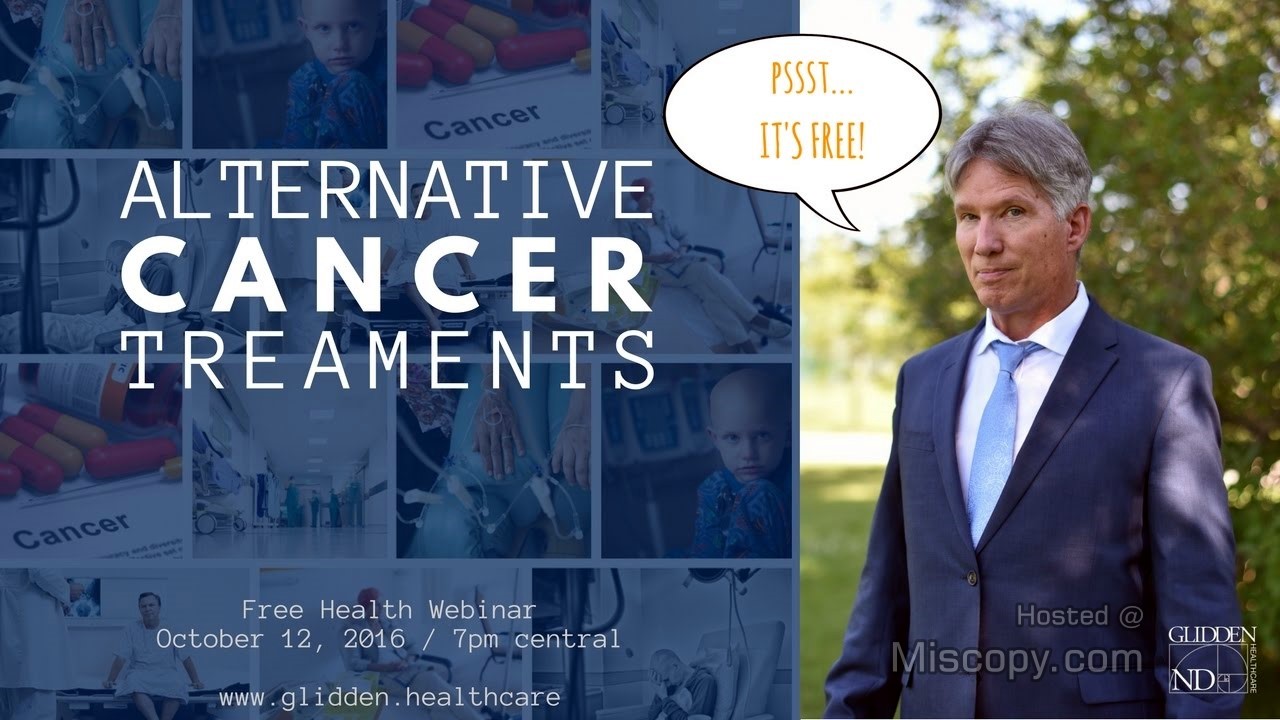
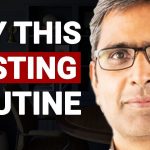
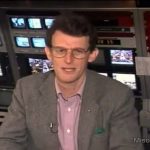
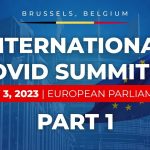
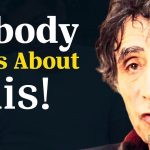
Leave a Reply